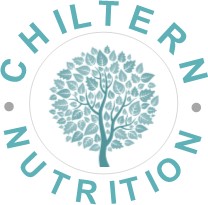All about eggs
All About Eggs!
Eggs have long been a staple breakfast option, but with recent headlines in the media, you could be forgiven for wondering whether “going on work on an egg” is still a good option.
Eggs have had bad press over the years because they are relatively high in cholesterol. It used to be thought that cholesterol in foods had a negative impact on the levels of LDL (“bad”) cholesterol in our bodies, but more recent studies have shown that dietary cholesterol has a limited impact on our blood cholesterol levels.
However, eggs were back in the headlines last month following an observational study which linked egg intake to an increased risk of cardiovascular disease. The study did have a number of limitations though – it focussed only on egg consumption and not what else was in the diet, so it’s hard to attribute the increased risk to the eggs alone. Additionally, this trial was based on the participants recall of what was eaten, a notoriously inaccurate way of measuring dietary intake. It’s therefore impossible to draw firm conclusions – association doesn’t equal causation!
So are eggs healthy?
In a word yes – very! Eggs are a complete protein, which means they contain the full spectrum of essential amino acids (the ones we can’t make ourselves and need to get through our diet. They also contain a good range of vitamins and minerals, including vitamin A, vitamin D (which most of us don’t get enough of in the UK) and vitamin B12.
Eggs also contain choline, an important nutrient in a number of bodily functions. Choline is neither a vitamin or mineral and although we can make small amounts in the liver, it’s essential to get most of it from our diet. It plays a role in some key bodily functions including the structure of our cells, the metabolism of cholesterol and healthy functioning of the nervous system. Although available in smaller quantities in plant based foods, eggs are an excellent source of choline, particularly for vegetarians who don’t obtain it from other rich sources such as meat and fish.
There are no official guidelines on how many eggs should be included in the diet, but as always, variety is key and it’s good to mix up your protein sources to ensure you’re getting a good range of nutrients. Advice has recently changed regarding eating raw or lightly cooked eggs when pregnant or elderly. Eggs with the British lion stamp should be fine, but vulnerable groups should still take care with non-stamped hens eggs and also with duck or quails eggs.
How to have them
Eggs are a great breakfast food as protein helps us feel fuller for longer and regulate blood sugar levels for a consistent supply of energy through the morning. They are endlessly versatile – delicious poached, scrambled or boiled. However, you can also add them to porridge for extra protein (it makes the porridge really creamy, just stir constantly whilst cooking over a low heat to avoid scrambled eggs!), have the in pancakes or add to a breakfast dish like shakshuka (a Middle Eastern vegetable dish – find plenty of recipes on line) for extra veg to start the day.
Liz Driver, Chiltern Nutrition
Tel: 07853 664381
Our privacy policy
Copyright Chiltern Nutrition 2018. Designed by Cleverfrog Website Design


